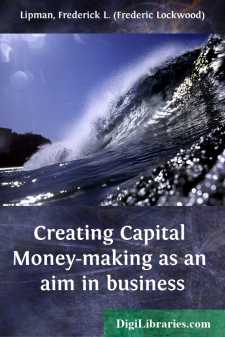Categories
- Antiques & Collectibles 13
- Architecture 36
- Art 48
- Bibles 22
- Biography & Autobiography 813
- Body, Mind & Spirit 142
- Business & Economics 28
- Children's Books 15
- Children's Fiction 12
- Computers 4
- Cooking 94
- Crafts & Hobbies 4
- Drama 346
- Education 46
- Family & Relationships 57
- Fiction 11828
- Games 19
- Gardening 17
- Health & Fitness 34
- History 1377
- House & Home 1
- Humor 147
- Juvenile Fiction 1873
- Juvenile Nonfiction 202
- Language Arts & Disciplines 88
- Law 16
- Literary Collections 686
- Literary Criticism 179
- Mathematics 13
- Medical 41
- Music 40
- Nature 179
- Non-Classifiable 1768
- Performing Arts 7
- Periodicals 1453
- Philosophy 64
- Photography 2
- Poetry 896
- Political Science 203
- Psychology 42
- Reference 154
- Religion 513
- Science 126
- Self-Help 84
- Social Science 81
- Sports & Recreation 34
- Study Aids 3
- Technology & Engineering 59
- Transportation 23
- Travel 463
- True Crime 29
In Morocco
by: Edith Wharton
Description:
Excerpt
I
Having begun my book with the statement that Morocco still lacks a guide-book, I should have wished to take a first step toward remedying that deficiency.
But the conditions in which I travelled, though full of unexpected and picturesque opportunities, were not suited to leisurely study of the places visited. The time was limited by the approach of the rainy season, which puts an end to motoring over the treacherous trails of the Spanish zone. In 1918, owing to the watchfulness of German submarines in the Straits and along the northwest coast of Africa, the trip by sea from Marseilles to Casablanca, ordinarily so easy, was not to be made without much discomfort and loss of time. Once on board the steamer, passengers were often kept in port (without leave to land) for six or eight days; therefore for any one bound by a time-limit, as most war-workers were, it was necessary to travel across country, and to be back at Tangier before the November rains.
This left me only one month in which to visit Morocco from the Mediterranean to the High Atlas, and from the Atlantic to Fez, and even had there been a Djinn's carpet to carry me, the multiplicity of impressions received would have made precise observation difficult.
The next best thing to a Djinn's carpet, a military motor, was at my disposal every morning; but war conditions imposed restrictions, and the wish to use the minimum of petrol often stood in the way of the second visit which alone makes it possible to carry away a definite and detailed impression.
These drawbacks were more than offset by the advantage of making my quick trip at a moment unique in the history of the country; the brief moment of transition between its virtually complete subjection to European authority, and the fast approaching hour when it is thrown open to all the banalities and promiscuities of modern travel.
Morocco is too curious, too beautiful, too rich in landscape and architecture, and above all too much of a novelty, not to attract one of the main streams of spring travel as soon as Mediterranean passenger traffic is resumed. Now that the war is over, only a few months' work on roads and railways divide it from the great torrent of "tourism"; and once that deluge is let loose, no eye will ever again see Moulay Idriss and Fez and Marrakech as I saw them.
In spite of the incessant efforts of the present French administration to preserve the old monuments of Morocco from injury, and her native arts and industries from the corruption of European bad taste, the impression of mystery and remoteness which the country now produces must inevitably vanish with the approach of the "Circular Ticket." Within a few years far more will be known of the past of Morocco, but that past will be far less visible to the traveller than it is to-day. Excavations will reveal fresh traces of Roman and Phenician occupation; the remote affinities between Copts and Berbers, between Bagdad and Fez, between Byzantine art and the architecture of the Souss, will be explored and elucidated, but, while these successive discoveries are being made, the strange survival of mediaeval life, of a life contemporary with the crusaders, with Saladin, even with the great days of the Caliphate of Bagdad, which now greets the astonished traveller, will gradually disappear, till at last even the mysterious autocthones of the Atlas will have folded their tents and silently stolen away....






















